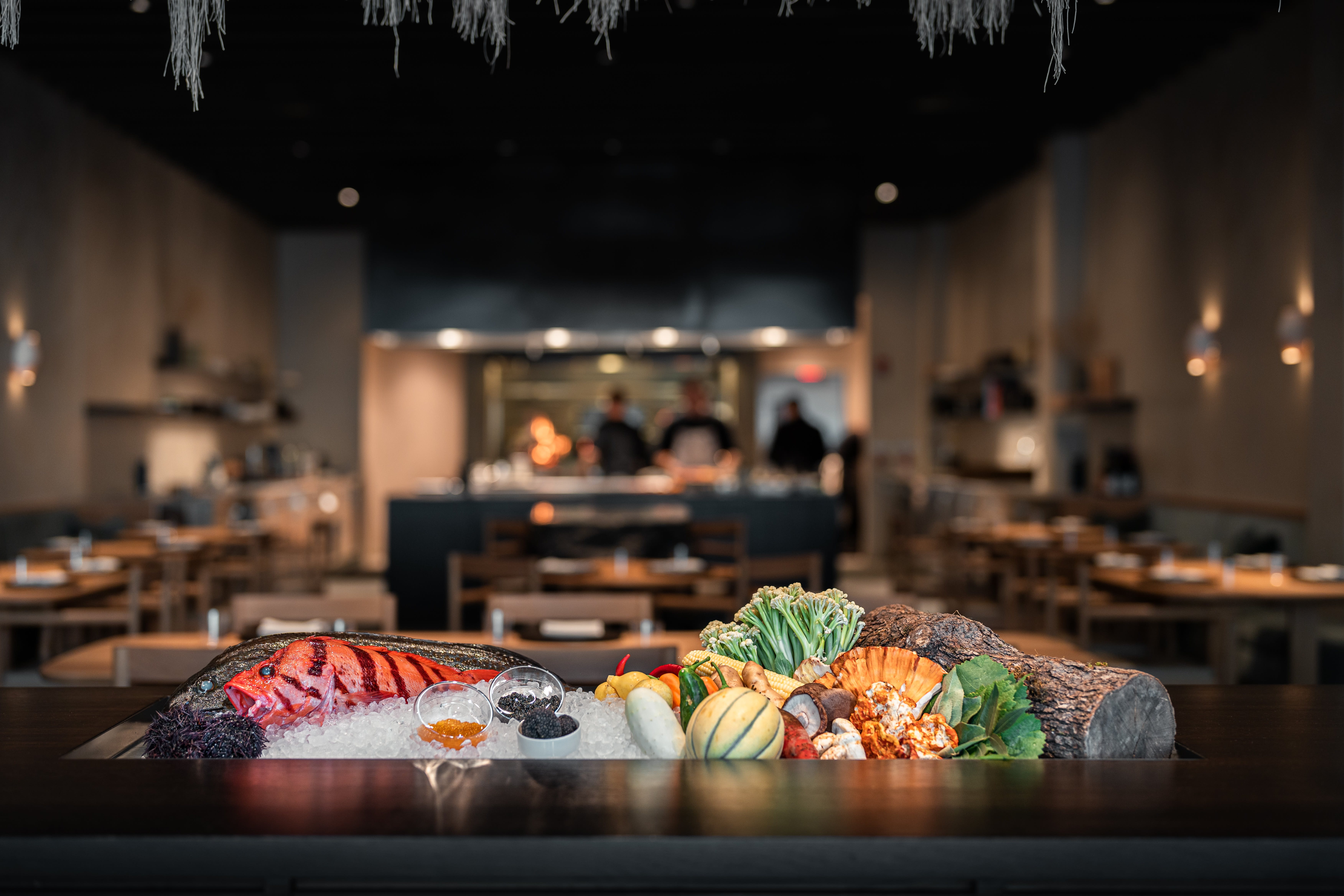
Michelin-Starred Chef Matthew Lightner Seeds Oregon’s Next Food Revolution at Okta
Thirteen years ago, when he wheeled into Portland in a beat-up Chrysler, Matthew Lightner wasn't planning a food coup. Or was he? Portland had Higgins, maverick food trucks, and fun-loving meat slayers. At 28, the preternaturally gifted Lightner had experience, techniques, and ideas gleaned at Europe's most advanced restaurants. As a forager-chef at Castagna, he dared to ask, “Who are we? What can we be?” The answers arrived in a nervy, nature-based cuisine somewhere between James Beard and the outer rings of Saturn.
When he left two years later, Lightner's eye-popping magic realism wowed even jaded New Yorkers. Atera, his tiny Big Apple restaurant, promptly earned two Michelin stars, plus three from New York Times's Pete Wells. But he always vowed to return to Oregon, to dig deeper.
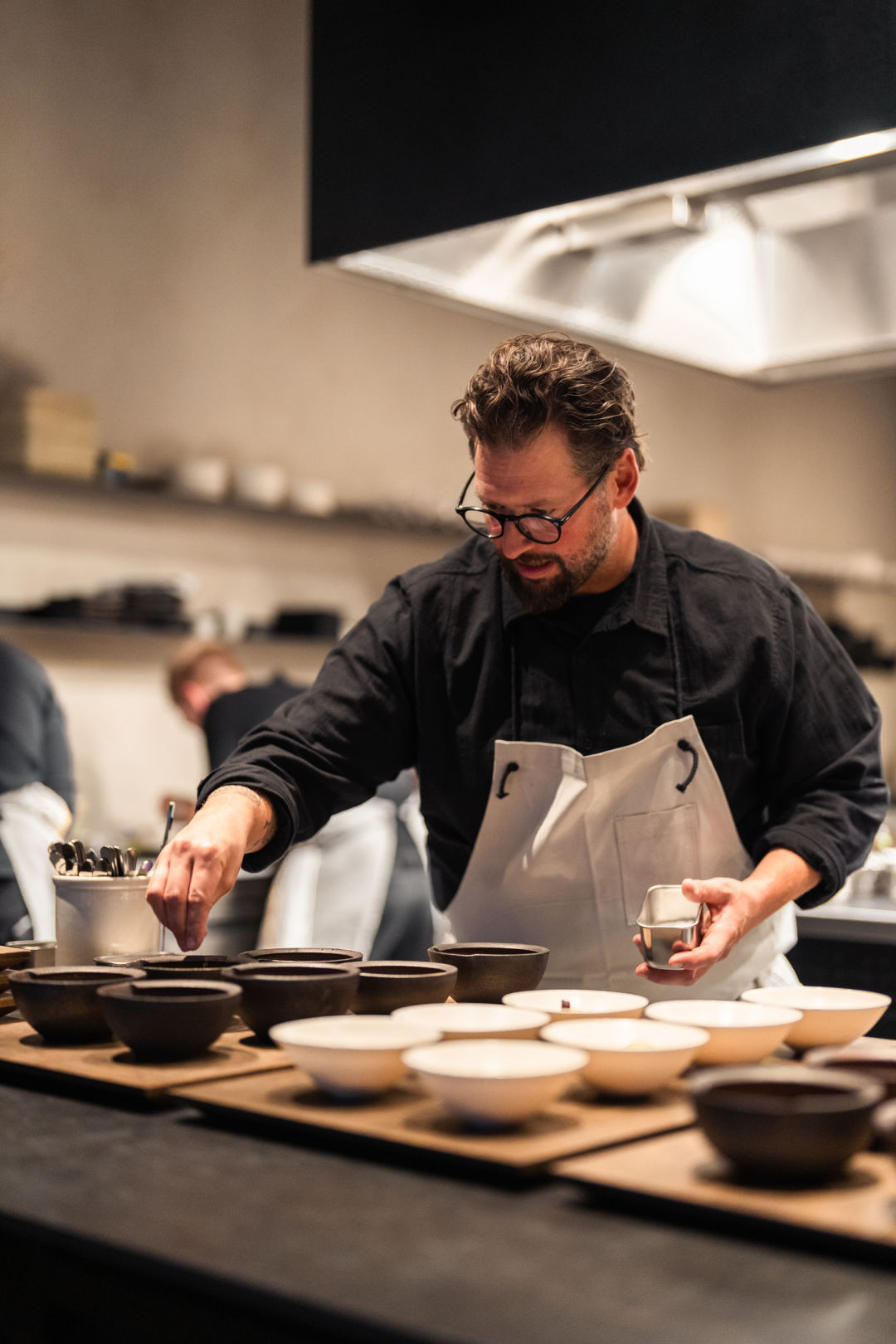
IMAGE: CARTER HIYAMA
That future is here, and it's not what we expected. In July, Lightner's 26-seat Okta landed like a friendly alien spaceship on McMinnville's Main Street, the center and small-town heart of Oregon wine country. Summer's tasting menu kicked off with glistening corn kernels landscaped over duck egg custard; a bowl of tiny heirloom tomatoes, six different kinds, sided by charred greens in chamomile butter; and velvety albacore sashimi tucked under cucumber fans. Think thoughtful, tender, understated. It's as if Ziggy Stardust returned and put out a poetry album.
With Okta, Lightner has gone to ground zero. He's growing most of the restaurant's provisions on a one-acre farm seven miles from the kitchen door, hand-planted by soil whisperer Katie Boeh. This rambling patch of paradise is his new grocery store: A-caliber heirloom vegetables, wild plants, mushrooms growing on tree stumps.
The ethos is hand-tended and low soil disturbance, with the night's dishes plotted in the field, in the moment, and in consult with Boeh. Meanwhile, in a barn steps away, Lightner and fermenter Larry Nguyen are creating an experimental food lab and modern pantry that pushes the notion of made-in-Oregon. Already, their arsenal includes thirty kinds of miso, lamb powder, and brisket garum (fish sauce). In short, these glorious super nerds hope to capture the soul and biology of the Willamette Valley on plates.
If only they remembered to tell us! Storytelling is missing at Okta's table, a framework to help us understand and appreciate a study of tomatoes, the day's best and brightest, plucked from some twenty options just hours earlier. I wish they could help us feel the start of something new, with all its edges and chaos, struggle and pride. We want to feel the joy that Boeh feels when she digs that first sweet potato from the ground, Nguyen takes it to the lab, and Lightner riffs on it at dinner.
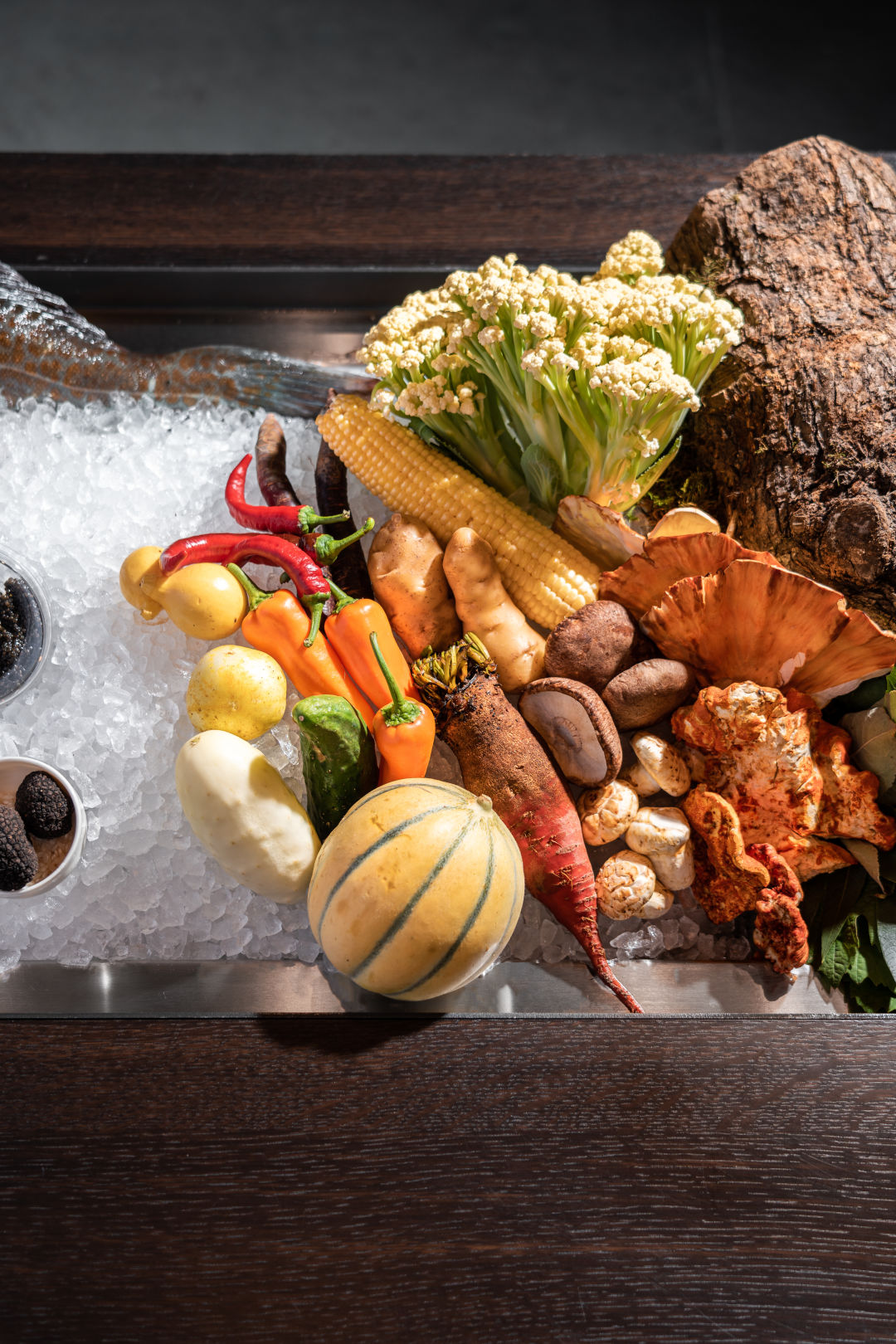
IMAGE: CARTER HIYAMA
Right now, greeting us inside the door is a grand display of the night's mise en place, with no explanation. Are we in Zupan's produce section? No one mentions what we're eating or why it matters.
Understanding the vision changed everything on my second visit. Sea urchin, for one, arrives in a creamed haze of the farm's luminous Gatherer's Gold yellow peppers. But the mystery note turns out to be a tamari sauce conjured in Okta's lab with Jimmy Nardello peppers, coveted by chefs for their candy-like character.
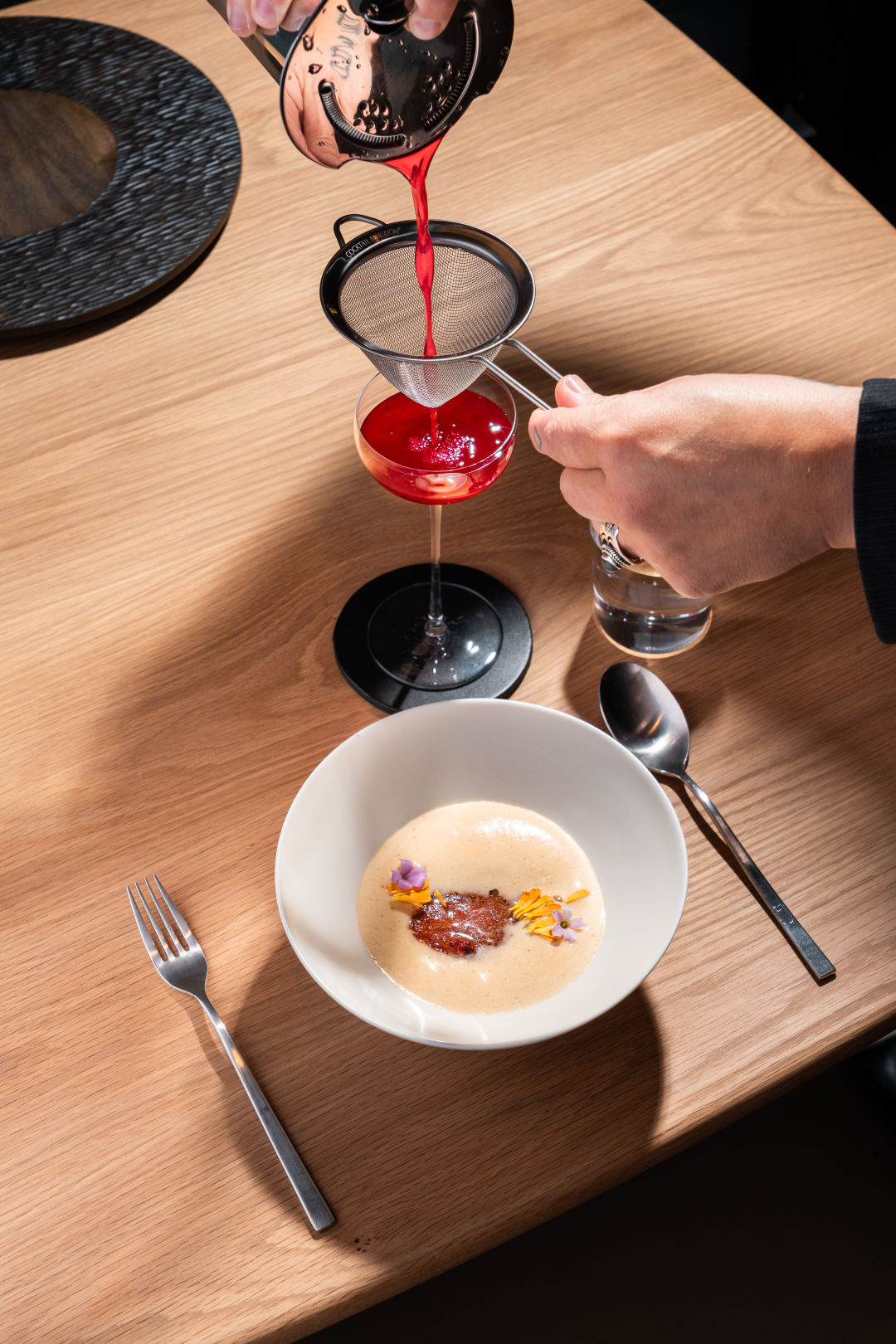
IMAGE: CARTER HIYAMA
On two visits, the $165 midweek tasting menus ( 10- to 12-courses) yielded a handful of stunners, some quiet delights, fantastic bread, and a few forgettables. (Weekend menus are more extensive and expensive). The holy cow moment is a roasted golden beet orb parked in an ethereal sweet custard sauce turbocharged with seafood essence. In one swoop: surf, turf, and dessert. A humble collection of kohlrabi, turnips, and lobster mushrooms turns out to be a masterclass in contrasts—crunchy, fermented, and pickled over silky hazelnut tofu. Seafood overall is excellent, and the night's lone meat dish, a slice of coffee-rubbed ribeye over creamed roasted matsutakes, deserves a doctoral degree in beefy perfume. Resting on top: shavings of the first wine cap mushrooms grown on the farm.
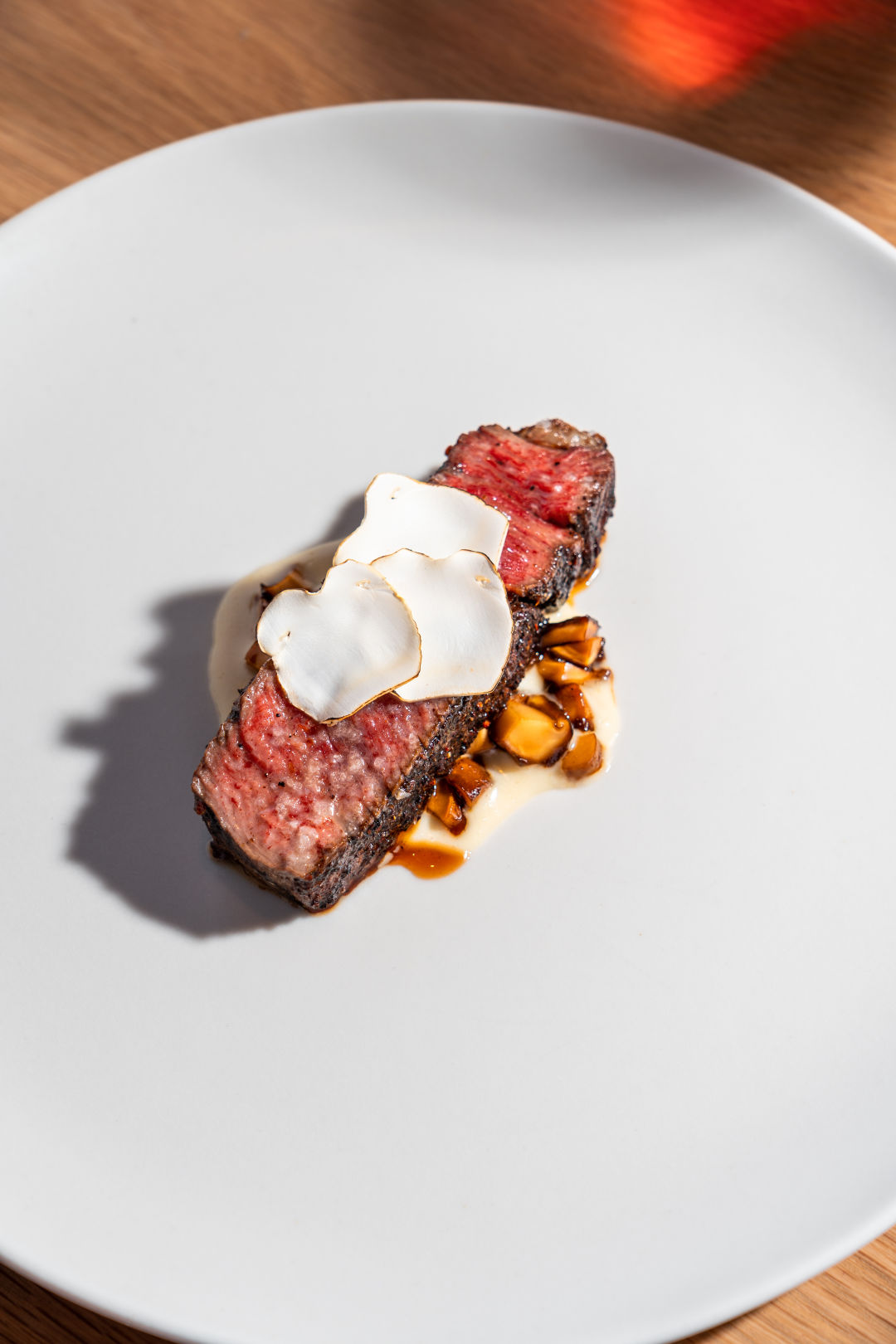
IMAGE: CARTER HIYAMA
Still, I longed for a little Mad Matt Fury Road, and desserts deliver. Lightner is an ice cream fanatic who learned the art at Spain's famed Mugaritz, which explains three courses of it. Your arteries might star in the sequel to Armageddon, but who's complaining? The first defies the laws of thermodynamics: a still-life of ultra-creamy Meyer lemon sherbet in a scooped-out lemon. Dig deeper and suddenly you're falling inside of a lemon meringue pie, as room temperature fluffs and curds are suspended in animation. Another lush scoop, whirled with orange jam, hovers over a far-out Rice Krispy treat teetering on top of a ganache-filled chocolate tart shell. Some of Okta's dishes are politely refined, but this concoction is on psychedelics. More, please.
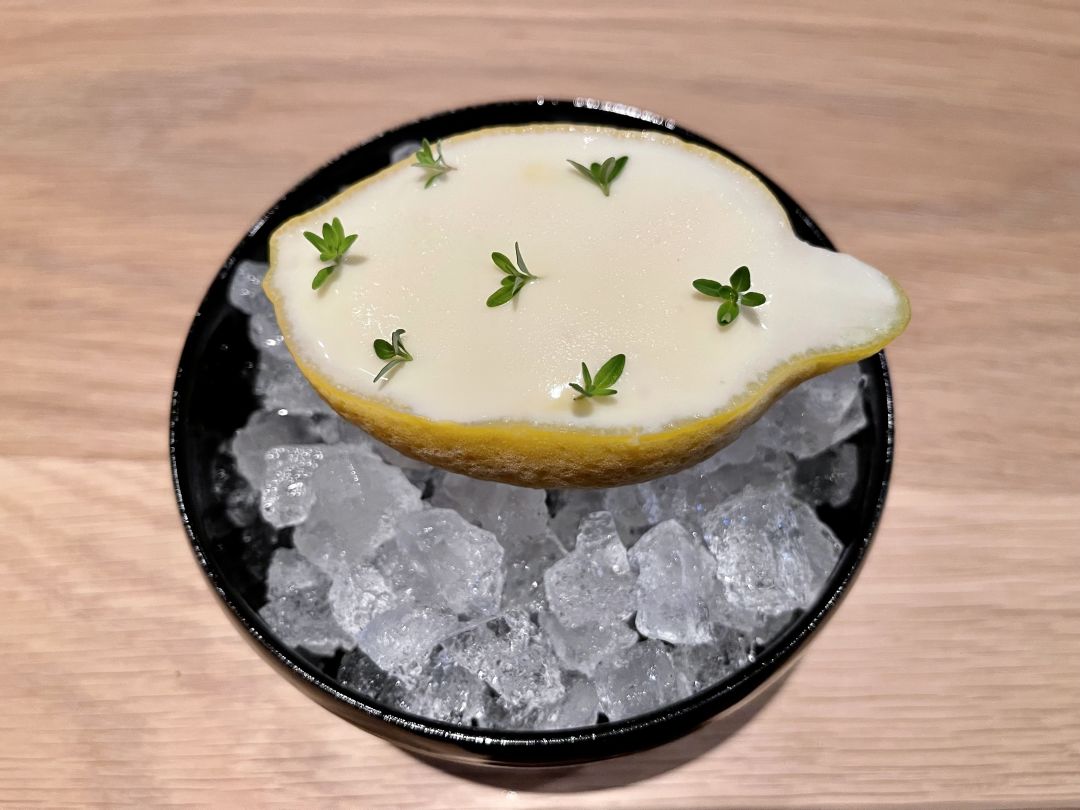
IMAGE: BY KAREN BROOKS
The wine list is insightfully curated for Oregon and beyond. It pays homage to the OGs of pinot noir and taps some serious local wine libraries for rare finds. But it also expresses new directions; the existence of twenty local sparkling wines was unheard of ten years ago. Gregarious sommelier Ron Acierto, who assembled this massive list, is a fine guide. You want a trophy wine, he's here for you, babe. But no one tries to hard-sell you on the high end. Okta offers plenty of very good and interesting wines for $45-50. One of the best pinot blancs in America can be had here for $58 from WillaKenzie Estate.
The room is a narrow sea of calm, all dark slate walls, built-in cushy banquettes, custom white oak furniture. Wine glasses are hand-blown Zaltos, the height of chic, but the dress code is Come As You Are.
When talking about Lightner's food now, “bold” has a different connotation. Castagna baffled a lot of Portlanders at first. We didn't know what to make of it. Okta challenges, too, in a different way. Ten weeks after opening, the kitchen is making some of the best and most refined dishes in Oregon, backed by a commanding wine list, compelling cocktails, and excellent service.
It's only a glimmer. Projects of this scope take time. Recall: It took Noma, the world's best restaurant and groundbreaking fermentation hub, two years to earn its first Michelin star. Some of Okta's fermentation ideas won't even announce themselves for a year or two. I expect they will be revolutionary. Who else is even thinking about the microbiology of the region? If not Matt Lightner, then who?
618 NE Third St, McMinnville, oktaoregon.com




